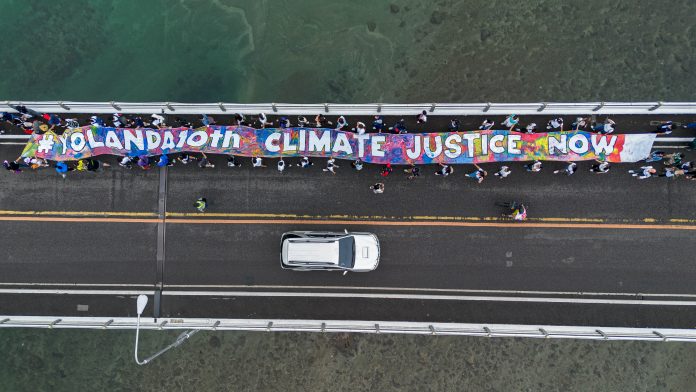Oxfam Pilipinas has called on local governments to shift from a reactive to a proactive approach to managing disaster funds on the 10th anniversary of Super Typhoon Yolanda (Haiyan).
The organization is urging local authorities to utilize Local Disaster Risk Reduction and Management Funds (LDRRMF) more effectively to reduce the devastating impacts of climate-related disasters.
Super Typhoon Yolanda, which struck in 2013, affected more than 14 million people across 46 provinces.
In its study, Oxfam Pilipinas revealed that local government units (LGUs) tend to allocate their 30 percent quick response funds (QRF) primarily in response to actual disasters but are less likely to spend a significant portion of the 70 percent disaster preparedness and mitigation fund.
According to the report, the annual audit reports of the Commission on Audit indicated significant delays in the utilization of funds, leading to an accumulation of unspent resources.
This bureaucratic inefficiency has left a substantial portion of funds intended for enhancing community disaster preparedness unspent, resulting in fewer investments to address the disproportionate impacts of disasters on vulnerable groups.
Erika Geronimo, executive director of Oxfam Pilipinas, said, “We cannot afford another Haiyan devastating people’s lives. We learned the hard way that the best way to reduce the impacts of a climate crisis is by preparing early for an imminent disaster.”
The study recommended a shift towards anticipatory actions, including the disbursement of preemptive cash assistance and asset protection through crop and asset insurance before any hazard strikes.
The group also encouraged local officials to prioritize the nuanced and differentiated needs of various vulnerable groups, including women, girls, persons with disabilities, indigenous people, the elderly, the youth, and people of diverse sexual orientations, gender identities, expressions, and characteristics (SOGIESC).
“Inclusive and community-based disaster preparedness, along with anticipatory actions such as pre-disaster cash assistance, are effective strategies to reduce the devastating effects of the climate crisis,” said Esteban Masagca, executive director of the People’s Disaster Risk Reduction Network.









